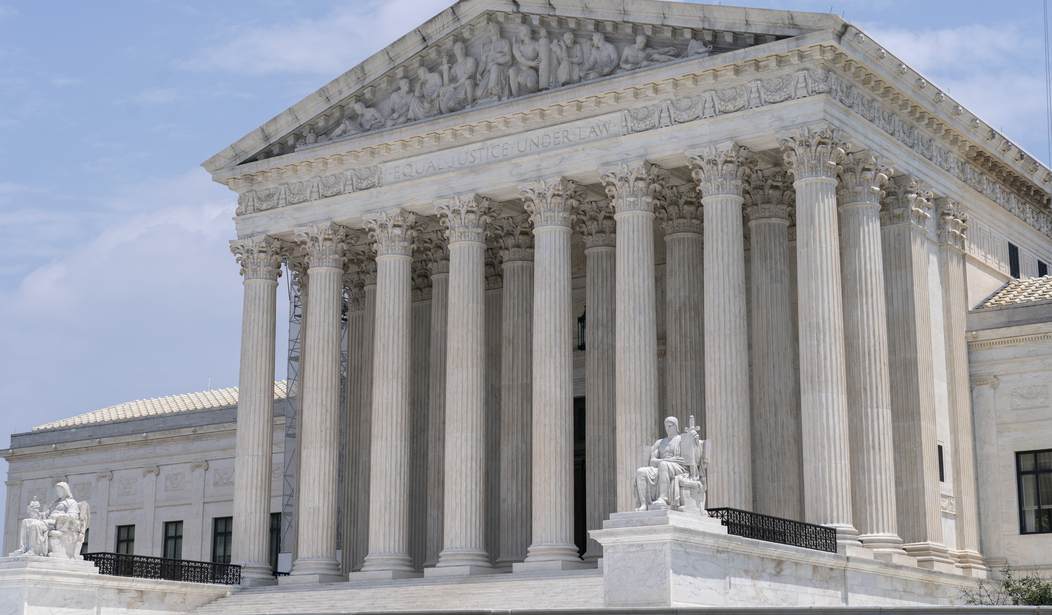File this under "It's about damn time." This week the United States Supreme Court will hear arguments on Relentless, Inc. v. Department of Commerce, which has the potential to dramatically change the way the federal government issues regulations.
At issue is whether courts should defer to interpretation by federal agencies when a law could have multiple meanings, a practice known as Chevron deference.
In practical terms, this means the court is considering whether to weaken the ability of a presidential administration to put forward regulations meant to counter pollution or climate change or to protect consumers without clearer authorization from Congress.
Such a feat would advance a long-sought goal of anti-regulatory interests, whose hopes are bolstered by some conservative justices’ recent skepticisms of Chevron. It is one of multiple, major cases at the high court this term implicating the administrative state.
Regulation can only arise from law. Congress is the source of any new law. Any regulation issued by any government agency has to be authorized by a specific statute, voted on, and passed by Congress. It is perhaps belaboring the obvious to point out that federal agencies have pushed the boundaries of their regulatory authority in recent years, and we can hope that the Supreme Court is about to slam the doors on at least the most egregious of these oversteps.
There are, of course, the usual doomsayers.
“This is a campaign to weaken government’s ability to protect you from these kinds of modern dangers whether they’re to your health through unsafe air or water or … through unsafe drugs or food or whether it’s your financial security,” said David Doniger, senior strategic director for the Natural Resources Defense Council’s (NRDC) climate and clean energy program.
“Those protections require a government with some capacity to effectively respond, and this case is about destroying that capability,” Doniger added.
Should the Court rule to scale back these regulatory powers, one would be able to point out to the likes of Mr. Doniger that, no, the government's "capacity to respond" is limited by the Constitution, not by any single court decision. It is, of course, a standard reply, particularly coming from the Left, to deride any court decision they dislike as "illegitimate" or to call for ignoring the courts altogether, in an Andrew Jackson-like "they've made their ruling, now let them enforce it."
See Related: WATCH: Barely Coherent Nancy Pelosi Says States Can Overrule Constitution, Ban Trump From the Ballot
In the Battle Between Starbucks and Unionization, the Supreme Court Will Now Get Involved
This entire kerfuffle arises from the Chevron Deference, first described in 1984.
...the “Chevron deference” was coined after a landmark case, Chevron U.S.A., Inc. v. Natural Resources Defense Council, Inc., 468 U.S. 837 (1984). The Chevron deference is referring to the doctrine of judicial deference given to administrative actions. In Chevron, the Supreme Court set forth a legal test as to when the court should defer to the agency’s answer or interpretation, holding that such judicial deference is appropriate where the agency’s answer was not unreasonable, so long as Congress had not spoken directly to the precise issue at question.
It would seem that this entire question hinges on the definition of "unreasonable." A regulation requiring a documented annual safety inspection of commercial airliners would, to most, not seem unreasonable; a regulation demanding that those airliners use at least 75 percent "renewable" fuel sources would indeed be unreasonable and likely not authorized by regulation.
The Relentless case has to do with certain circumstances under which commercial fishing operations may be required to carry federal observers aboard their vessels during operations, and - this is the overreach - under some circumstances to be responsible for paying the salaries of those federal observers. The First Circuit has already approved the practice, which seems "unreasonable" under any sane definition, especially when the government's stated reason for the requirement was because their Congressional appropriation was insufficient to cover those salaries.
Deeming annual Congressional appropriations for the federal observers insufficient, the agency asserted a right to force the fishing vessels into contracts to pay the federal observers. The First Circuit approved this practice without stating whether its conclusion was a "product of Chevron step one or step two."
It doesn't take a great deal of imagination to predict where this presumption of financial responsibility could lead if left unchecked.
Arguments on Relentless are currently scheduled for Wednesday.















Join the conversation as a VIP Member